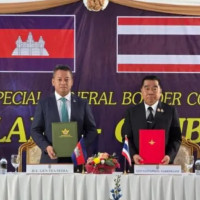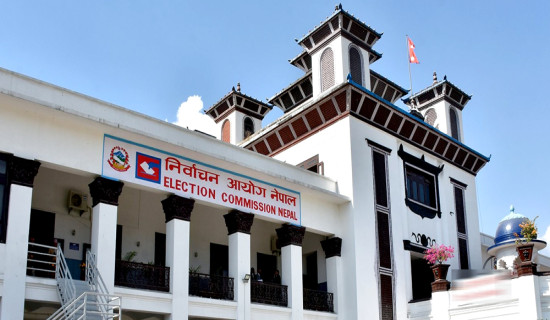- Sunday, 28 December 2025
SKorean adoptees query their past, quest for finding families
Seoul, South Korea, Oct. 5: Dozens of South Korean adoptees, many in tears, have responded to an investigation led by The Associated Press and documented by Frontline (PBS) last week on Korean adoptions. The investigation reported dubious child-gathering practices and fraudulent paperwork involving South Korea’s foreign adoption program, which peaked in the 1970s and `80s amid huge Western demands for babies.
Here are some of the problems adoptees who responded say they faced, along with tips for finding histories and birth families.
Kyla Postrel's paperwork tells two different stories, neither of which she’s sure is true.
After a DNA test last year, Postrel found a half-brother who was also adopted to the West. Comparing their paperwork made her even more sceptical of the stories they’d been told. But part of her is reluctant to keep looking "for something that may or may not exist and could be absolutely devastating.”
She has been flooded with messages from other adoptees looking for help, and tells them not to be disappointed if they can't track down their stories.
“I just don’t want any adoptees feeling like their life is a lie," she says. "Their life is everything that they’ve built since then.” If her birth mother is still out there, Postrel would want her to know her daughter has had a good life.
Cody Duet, adopted to rural Louisiana in 1986, requested his full file a decade ago. He got back less than one page, saying his mother was a young factory worker, his father was unknown and there was nothing more they were required to give him.
“It was probably one of the most angry moments in my life," Duet says. "Who are you to tell me that I don’t get to know who I am?”
He fell into a depression and couldn’t sleep. He struggled with abandonment, like he was easy to get rid of, easy not to love. But now, he wonders, was that story even true?
The AP investigation found that children were systemically listed as abandoned, even though researchers have found that the vast majority had known relatives.
Now Duet wants to resume his search. He wants to find his mother, to tell her he’s reached a point in his life that he’s proud of.
Amy McFadden always believed what the adoption agency told her parents — that she was abandoned on a staircase at 5 weeks old. Adopted to the United States in 1975, she’d heard stories about fraudulent adoptions, but always thought of them as one-off problems that had nothing to do with her. She’s grateful for her American life and close to her adoptive parents, and never felt the longing so many other adoptees do to reconnect with their roots. But when she found out from the AP stories that mothers in South Korea have searched for their missing children for decades, she says, she was in shock for three days. Waves of nausea radiated over her.
She wants to submit her DNA, in case a family has been looking for her.
Adoptees can first request information from their adoption agencies. If they don't get results from agencies, they can contact the South Korean government's National Centre for the Rights of the Child as a second step. (AP)
















